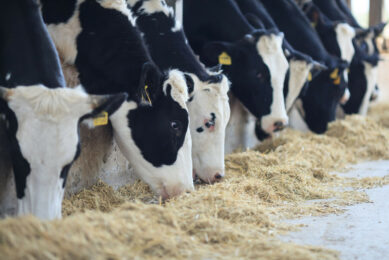US groups form task force on antibiotic resistance

The Association of Public and Land-grant Universities (APLU) and the Association of American Veterinary Medical Colleges (AAVMC) have announced the creation of the Task Force on Antibiotic Resistance in Production Agriculture.
The task force is comprised of representatives from US agriculture colleges/land grant universities and veterinary colleges as well as key representatives from the production animal agriculture community and the pharmaceutical industry. The goal of the task force is to help advise the federal government on a research agenda and also help publicly disseminate information on the use of antibiotics in production agriculture. Officials from key federal agencies are expected to serve as observers to the task force and leaders from public universities in Mexico and Canada will serve as ex officio members.
Scientists and the public have grown increasingly concerned about the evolution of antibiotic resistant bacteria in veterinary and human medicine. The World Health Organization (WHO) and the Centers for Disease Control and Prevention (CDC) have expressed serious concerns as well. Some bacteria have developed defenses against different classes of antibiotic compounds.
“We recognise antibiotic resistance as a public health challenge and look forward to collaborating with APLU and the federal government on this critical initiative,” said AAVMC Executive Director Andrew T. Maccabe, noting that many of the AAVMC’s member institutions are based at land-grant universities.
“This is an important collaborative effort,” APLU President Peter McPherson said. “The task force and its members are well-positioned to advise the Obama administration as they consider strategies to address the judicious use of antibiotics in production agriculture.”
Dr. Lonnie J. King, chair of the task force and dean of The Ohio State University College of Veterinary Medicine, said, “The task force will draw on the expertise of its members to serve as a knowledgeable and important source of advice for the federal government as it develops its plans. It can also make recommendations on further research that should be undertaken to develop alternative solutions for some antibiotic use in production agriculture.”
On September 18, 2014, the President’s Council of Advisors on Science and Technology (PCAST) released a report, Combating Antibiotic Resistance, which laid out several recommendations to address the problem. President Obama has also issued an executive order that describes the antibiotic resistant bacteria problem as a national security priority and directs various executive branch departments and agencies to develop a specific plan of action by mid-February 2015 to address antibiotic resistance and protect public health.
APLU and AAVMC are broadly supportive of the goals articulated in President Obama’s executive order and the framework provided in the PCAST report.
Once policies are established, according to King, APLU member institutions will play an important role in educating producers and the general public about the appropriate use of antibiotics in agriculture and veterinary medicine and the design of effective stewardship programs.











